Millennial Parents Are Revealing The Biggest Differences Between Their Children's Lives Vs. How They Grew Up, And It's Wildly Fascinating
We recently asked millennial parents of the BuzzFeed Community to tell us how their children's lives differ from how they grew up. Here are the surprising results:
1."My parents never wanted to know anything about my life or my mental health. If I had trouble at school, relationship questions, or questions about my body and how it worked, they absolutely would not entertain a conversation. If I was struggling in any way, I needed to 'buck up because people have it a lot worse.' I’m 32, and I have a 12-year-old and a 9-year-old, and I check in with them every day."
"I love hearing about every part of their days; I love helping them navigate tough situations and reminding them that they matter and can always trust me if they need help. I am determined to give them a stronger mental foundation than I was given."
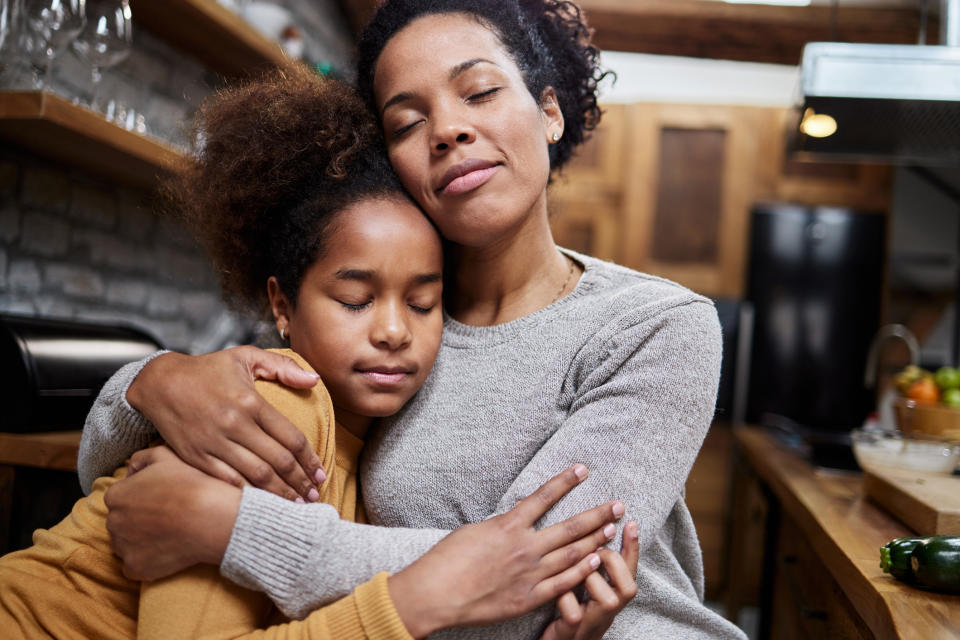
2."My parents, specifically my mom, were big on never apologizing even if they were wrong or lost their temper. I always say sorry to my kids if I’m wrong or snap at them."
"Echoing this — my parents and older siblings NEVER apologized (until now), and the next time we see each other, it’s as if nothing happened. They prefer to sweep it under the rug and move on, but I can’t. So, I always apologize to my kids; they won’t feel that hurt from me."
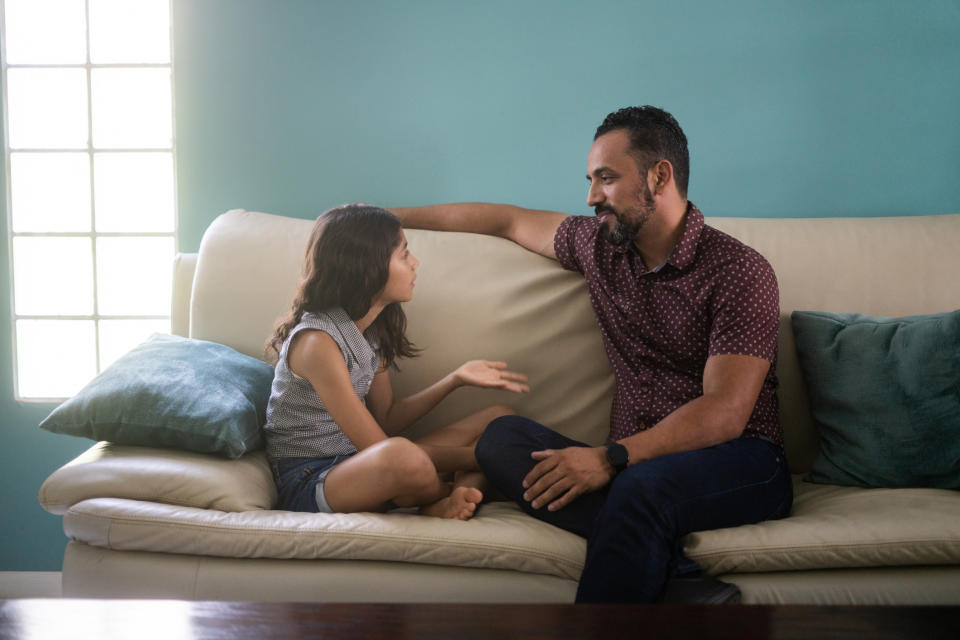
3."Being monitored during waking hours. I’m not sure my mom knew where I was most of the time during weekends and holidays. And even in school, everything is documented and fed back. I love knowing what my daughter gets up to, but I’m definitely more lax about her whereabouts than some other parents."
"I’m trying to teach her about trust and expectations, whereas I see a lot of children given no space to make mistakes and push against boundaries to test their abilities."
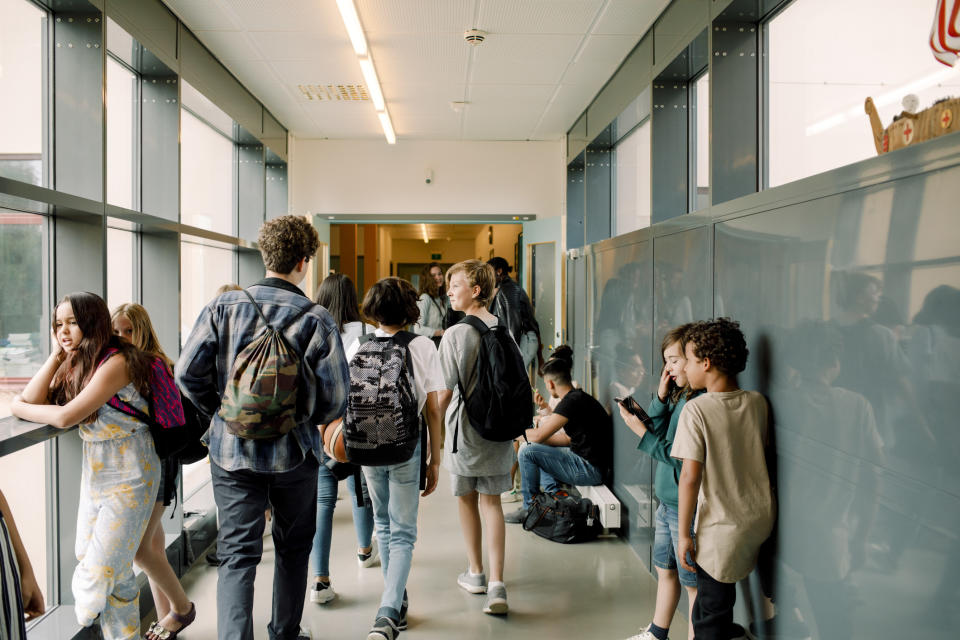
4."The biggest difference my husband and I noticed about our parenting is that we say 'I love you,' a lot more in our house than what we had growing up — to each other and to our son. It was never an intentional practice, but it’s nice to hear it often."
—31, Kentucky
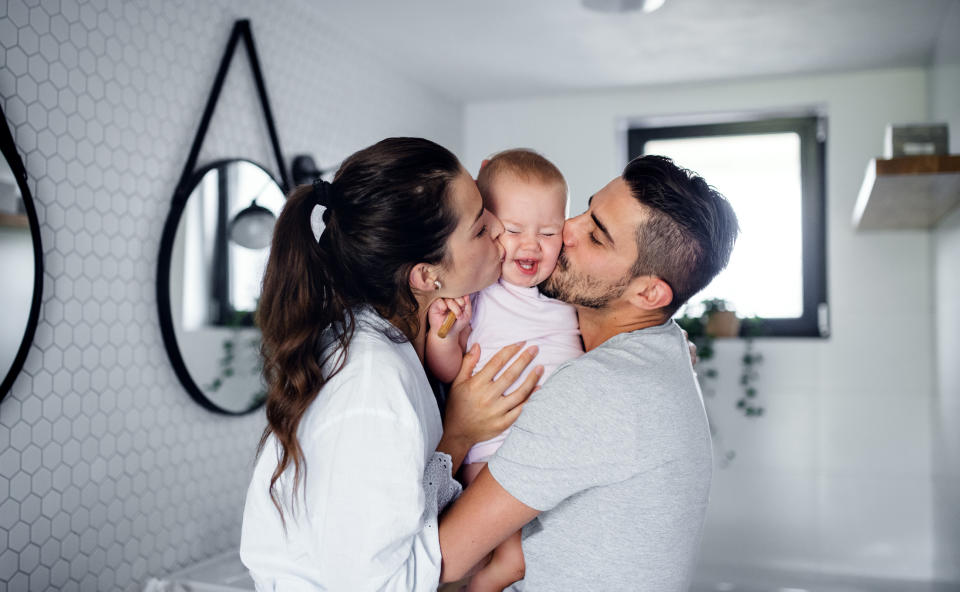
5."Screen time. I live in Scotland, and when I was growing up, kids' TV programs were on for an hour or two after school and maybe an hour or two on mornings at the weekend. You turned on the TV, and you just had to watch what was on. Now, my kids have Netflix, Disney Plus, or BBC iPlayer, and they could technically watch it all day every day. The onus is on the parent to promote responsible consumption. We generally do one to two hours of screen time a day for my 5-year-old; I'm a teacher, so I know how important play and social interaction are."
"You can even take the screens with you into restaurants, dentists, the car, the supermarket. I'm not saying I'm right, but I feel uncomfortable using a screen to keep my kids quiet when we're out. I think they should be learning how to be bored, how to behave, how to socialize, and how to make their own fun. And no one wants to hear Paw Patrol when they're trying to eat dinner."
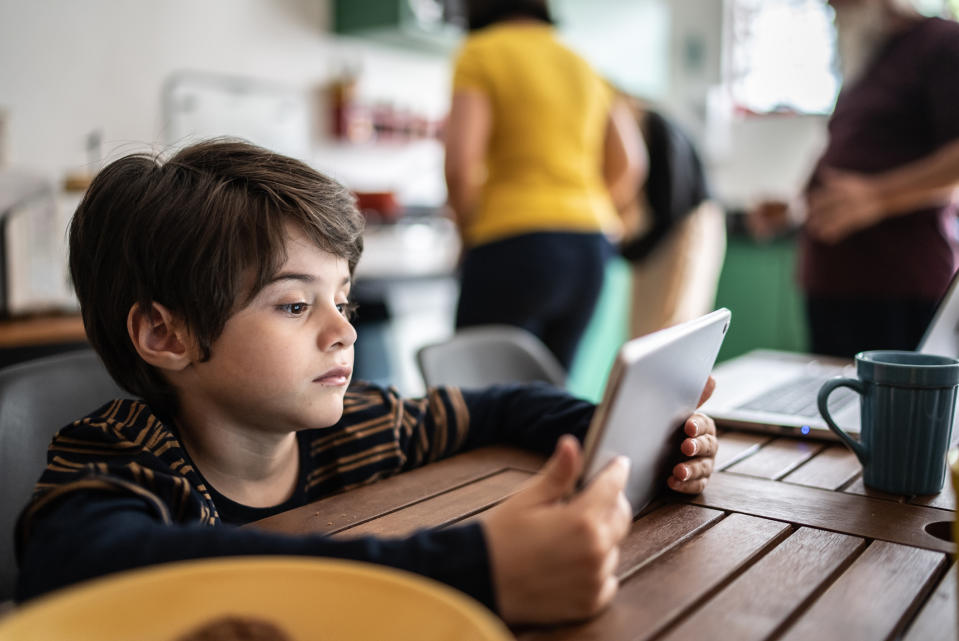
6."From about the age of 6, I was allowed to be outside on my own, but had to get home 'before dark.' That was always the rule. I grew up in a village of only about 800, so my friends and I walked/rode our bikes everywhere. I now live in a city of about 90,000, and the crime rate is so high that I don’t let my child go outside without an adult. I just cannot let her play with the neighbors' kids unless I can see her at all times."
"I know that seems extreme, but it wasn’t long ago that a guy here tried to kidnap a young girl. The only reason he didn’t make off with her was because she was with a boy, and the boy pulled a knife out on the guy. It was just a pocket knife, but at least it scared him off."
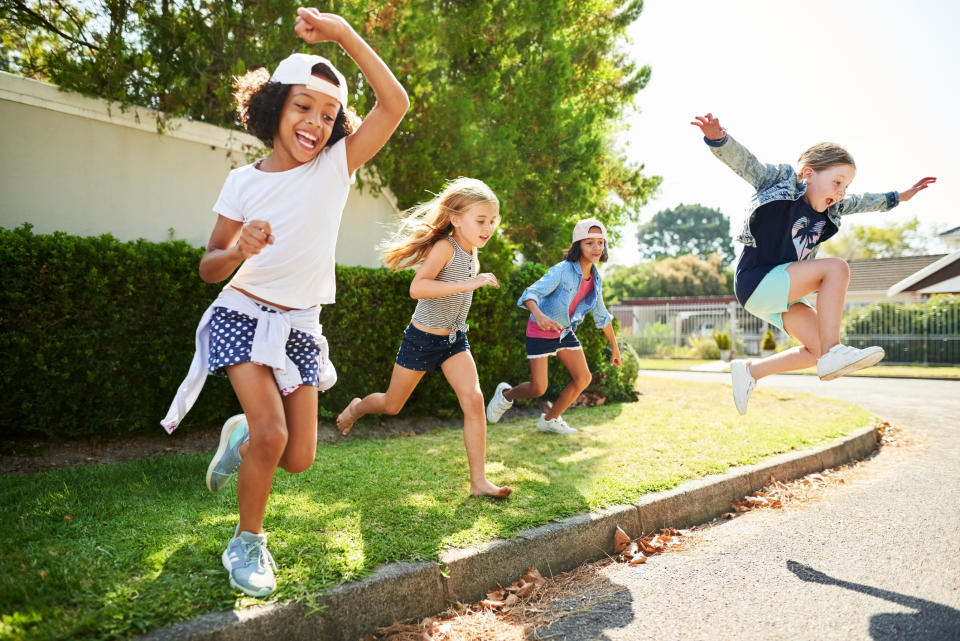
7."I was born in 1990, and my daughter was born in 2019. The biggest thing I've noticed isn't so much about the generation itself, but more about the world around it and what we're allowing them to inherit. When I was growing up in the '90s in West Virginia, the seasons were all very distinguishable; you knew that you were getting gorgeous leaves on the trees in the fall (so much so that we basically had entire festivals dedicated to it, with Bridge Day being a day to come out on one of the large, historic bridges in the state to take in the scenery as people parachuted off the bridge), tons of snow days in the winter and sitting at the window the night before school, watching the snow fall and just praying that it didn't stop so you could stay home tomorrow, a lot of rain bringing green and flowers in spring, and the hot summer heat with the warm summer nights."
"Now though, the leaves fall from the trees as soon as they turn because of the severe weather changes, so we don't get those couple spectacular months of beauty from the WV mountains, the rain lasts ALL year and is particularly bad in what used to be the spring, and the summers are so humid and hot that you literally can't breathe if you're outside for more than 15 minutes during the day — but half the time, it's literally freezing at night (my birthday is late July, and it was 30 degrees Fahrenheit on my birthday at night recently). It's just sad to me that my kid won't get to experience the same earth that I did growing up, because of the things we humans have done to it. It seriously hurts my soul."

8."So MANY things are different, but the biggest would be that we let our children make their own choices. For example, my daughter wanted to cut her long hair off for a pixie cut when she was 3, and my mom was appalled I let her make that decision because she was 'too young to know better.'"
"We also decided not to circumcise our son which both our moms were (and still are years later) completely against. Just didn’t seem like our place to make that decision for him, and we know a lot of other couples our age who also decided to go that route."
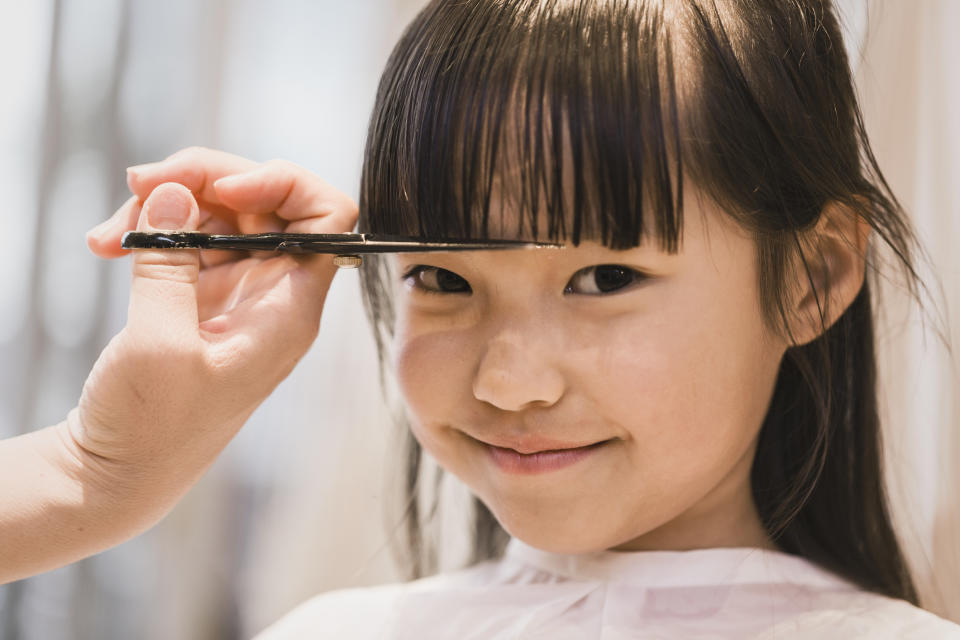
9."I would say phones and electronics are probably the biggest thing. I didn’t get my first phone until I was 12, and it was just an LG Scoop — no internet access. Nowadays an 8-year-old will walk around with access to almost anything imaginable. Kinda scary."
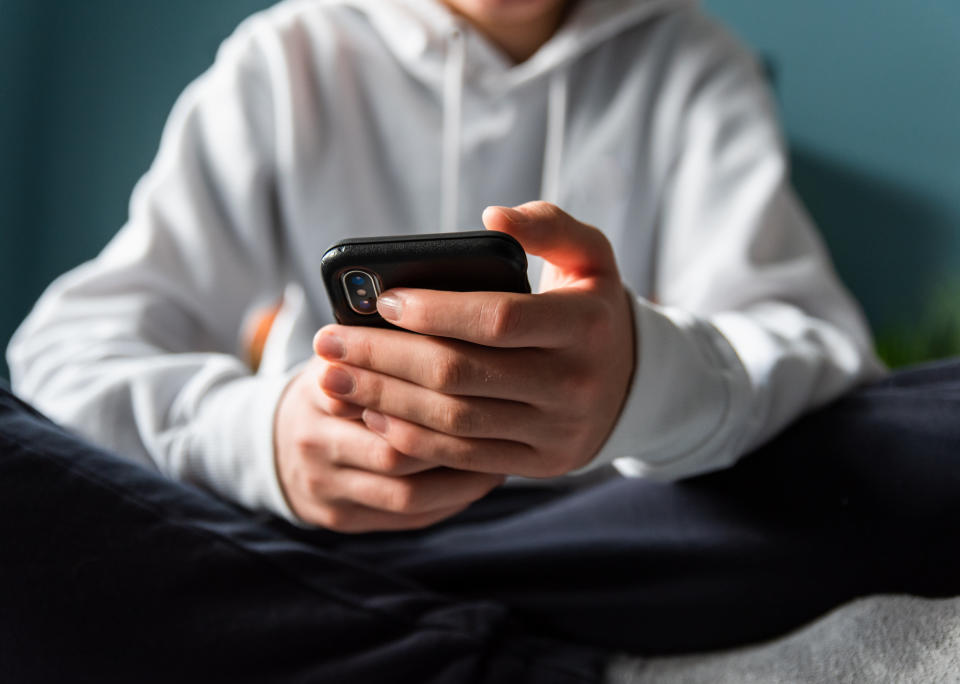
10."Being 100% honest and truthful with my kids. If they have a question about something they see on the news, social media, or something a friend said, I will tell them the truth. No sugar coating or stepping around the answer. I would rather my kids understand what is going on around them than be sheltered and oblivious."
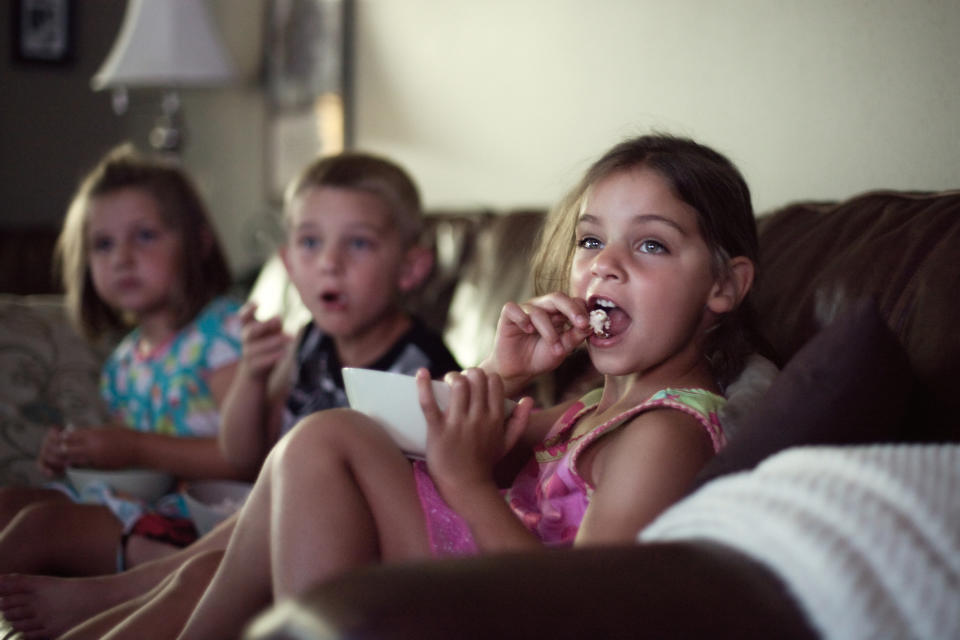
11."So much of my life is different than when I was growing up. First off, my dad was a raging alcoholic, and I was the firstborn of four. Growing up, I had to learn to adapt and got really good at reading people and situations. I can genuinely remember some instances when I feared for my safety because of my dad’s drinking. It was trying as I also had to take care of my siblings so that my mom could go back to school in case she needed to leave him and get a better job. I was left alone often to take care of the others, but I also had to make sure I was making the honor roll. I could go on, but honestly, as much as it sucked, I don’t think I would change anything because it helped me realize that my parents were people with their own problems."
"It made me incredibly empathetic (almost exhaustingly so), but it has helped me to better create boundaries. My oldest often tries to tell the other what to do but is always met with, 'You aren’t mama or dada. Don’t worry about what others are doing. You be a kid!' My kids are free to be children, loud, rambunctious, and free. They can respectfully question things and are allowed to FEEL things. They’re never shamed for being emotional, and I can’t stress enough to them that they should never be afraid to make a mistake or tell us about something they did wrong. With us, they’re safe to make mistakes."
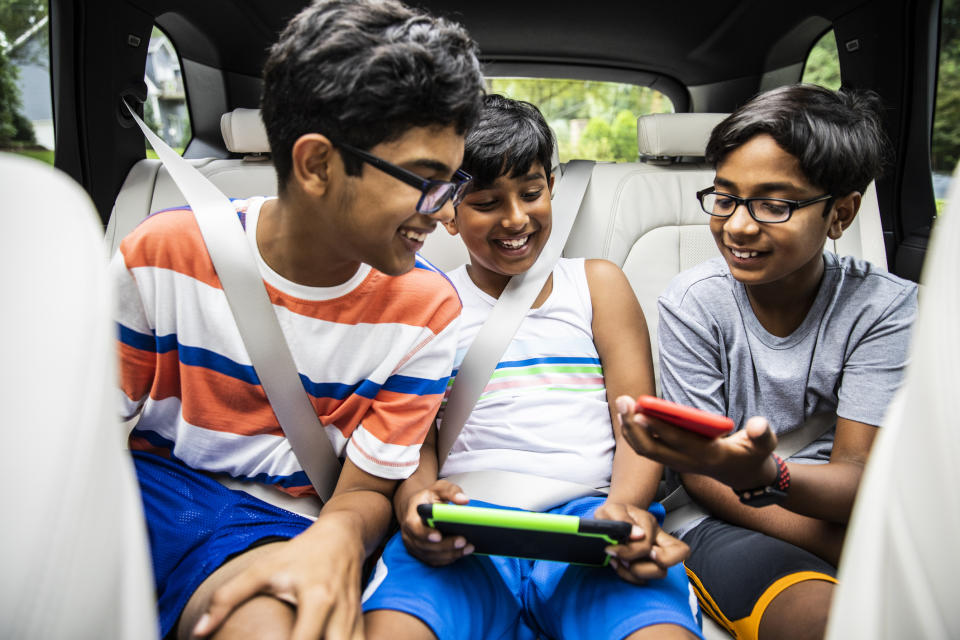
12."They are so much more hydrated than I was. They always have a water bottle with them at school or in the car. I used to think I was just never thirsty — turns out, I was just not used to drinking water."
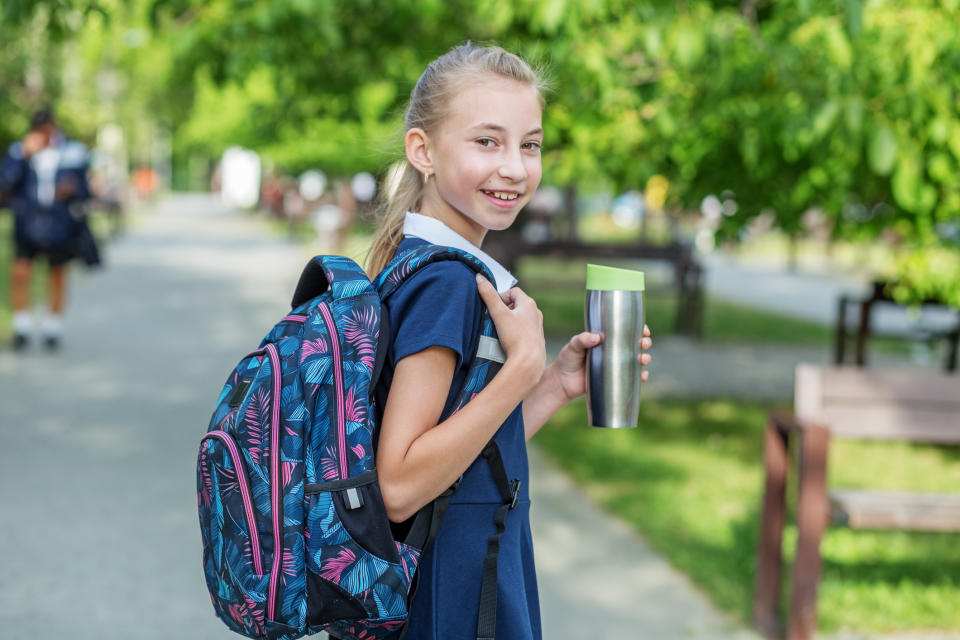
13."Giving her an option. It baffles my parents' minds when I give her a choice to pick certain items for dinner. Green beans or broccoli? Spaghetti or bow noodles? Chicken, steak, or no meat? They just didn't get it. It takes me the same amount of time, and I'm not making another dinner — though I will keep sauces/gravies separate since she doesn't like them — but I plate her food and then sauce it up."
"They're starting to understand, I think. She didn't 'want' the dinner I cooked (at my parents', I love to cook in their kitchen), and then I reminded her that SHE chose the protein, type of side, and veggies, and I cooked it the way she liked. She just glared and stomped away, ate her dinner, and then said, 'Don't let me choose it like that again.' They were floored that a 5-year-old could be so rational and understanding. I'm honest when she asks a question (especially about bodies), and I make sure to stop what I'm doing, get down to her level, ask her to explain how she is feeling, and help her understand and reconcile her feelings."
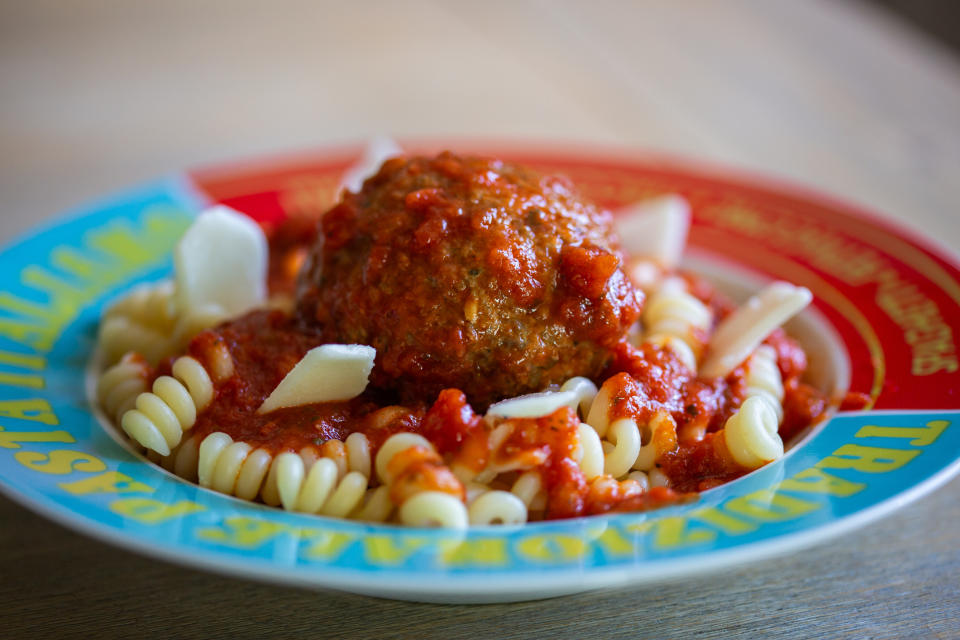
14."I have never spanked my kids. I talk to them and explain things and feelings. I’ll listen to them and answer their questions. Also, I apologize to them when I’ve messed up. I grew up getting spanked and hated it; I never understood why my parents wouldn’t just explain to me what I did wrong instead. I wasn’t always allowed to express when I was upset, either."
"The whole 'stop crying, or I’ll give you something to cry about' thing really messed with my mind as a kid. Never wanted my kids to feel like that."
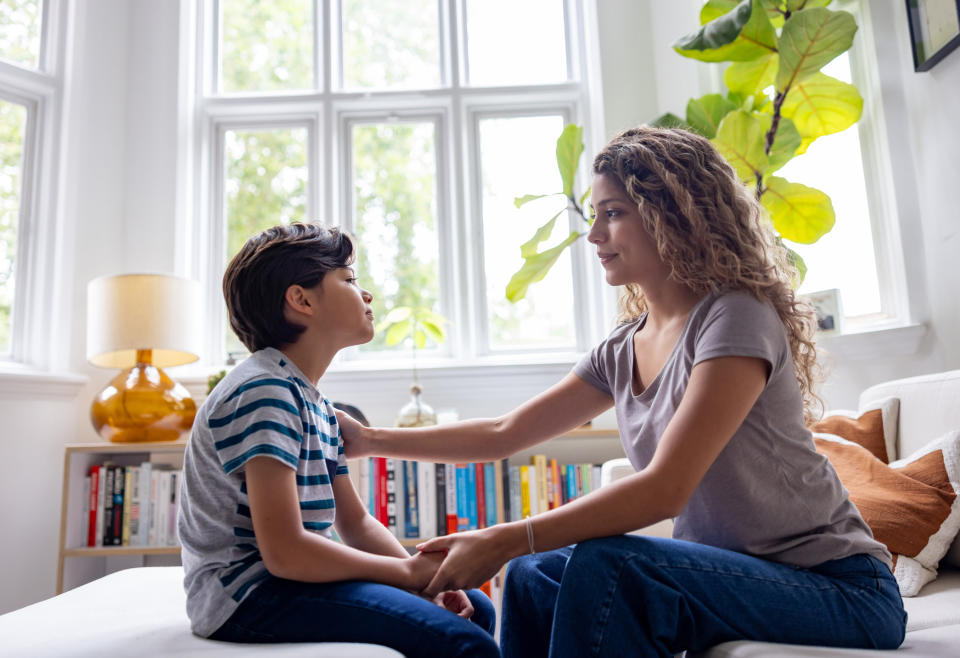
15."A HUGE positive I've noticed is my boss is a lot more flexible regarding schedules than my mom's boss was. I remember my mom was never able to come to class parties, Halloween parades, be a chaperone on field trips, etc. My mom always dropped me off at school, but a babysitter picked me up after, and I wouldn't see my mom until after 5:30 p.m. If I got sick at school, my grandma would pick me up, not my mom. I know I'm very fortunate to have a boss who understands that I'm a mom, and I need to be there for my kids."
"I am at all class parties, school events, and field trips. I'm able to pick up my kids if they are sick, and if I don't have a big event, I am always available. My husband's job also has the flexibility to get the kids if I'm unable to. We are so grateful to be there for school drop-off or pick-up every day. My mom would never have been allowed anything like this schedule."
—37, Utah
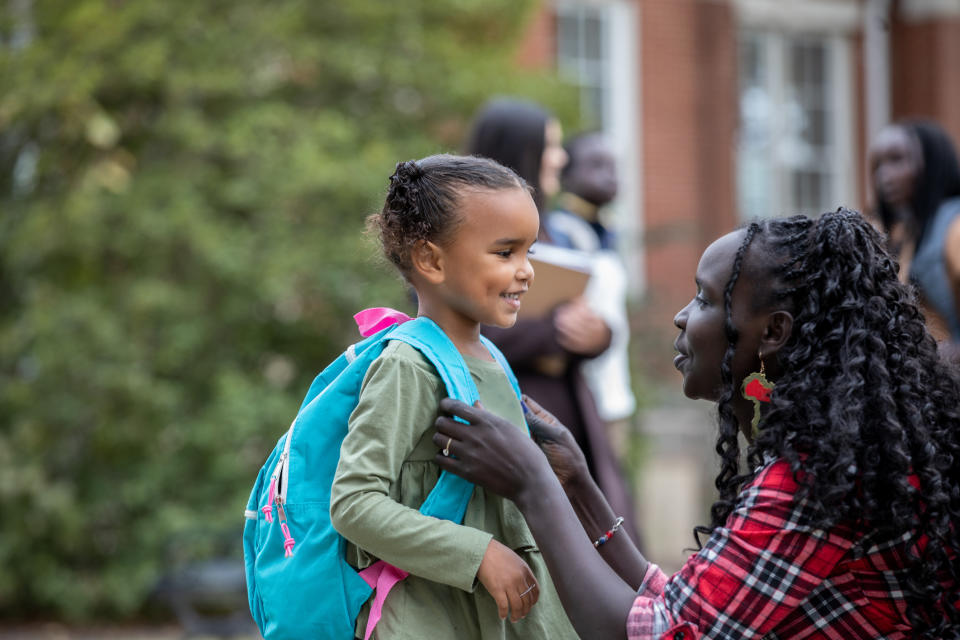
16."Not forcing my child to eat everything on their plate or not being able to leave the dinner table until their plate is cleared. Trying to teach or let my children be intuitive eaters. If they aren’t hungry, they can leave what’s on their plate. Also, finding a balance with dessert. Not putting dessert on a pedestal. They don’t have to finish their plate to have dessert."
—33, Canada
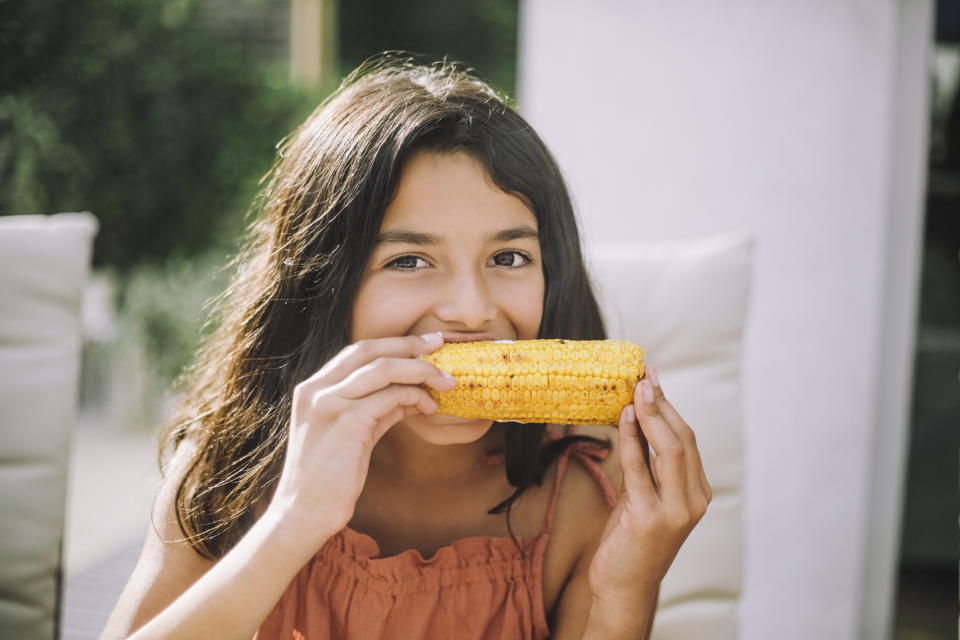
17."Social media and smartphones have ripped apart so many normal healthy boundaries society once took for granted. As a child and teen, my after-school hours and summers were spent not knowing what most classmates were thinking and doing, aside from the friends I actively communicated with. Bullies had little to no power outside of school hours. There were so many inherent boundaries in personal lives and communication. These days, children and teens can have the gossip and chatter of the entire school and beyond in their pockets 24 hours a day, along with a legion of strangers that can approve or disapprove at any moment. It's a level of social intensity that was only reserved for extremely popular celebrities a generation ago. Kids and teens deserve better boundaries than what they have today."
"They deserve less 'noise' in their lives and more privacy to learn and grow without unnecessary influences and without chasing unnecessary approvals from acquaintances and strangers. Life is complicated, nuanced, and precious. Our daily lives are too valuable to be merely cheap entertainment options in an algorithm. Protect your mental health by knowing the only people who deserve to be part of your private life are trusted family and friends. I want kids to know that."
—35, USA
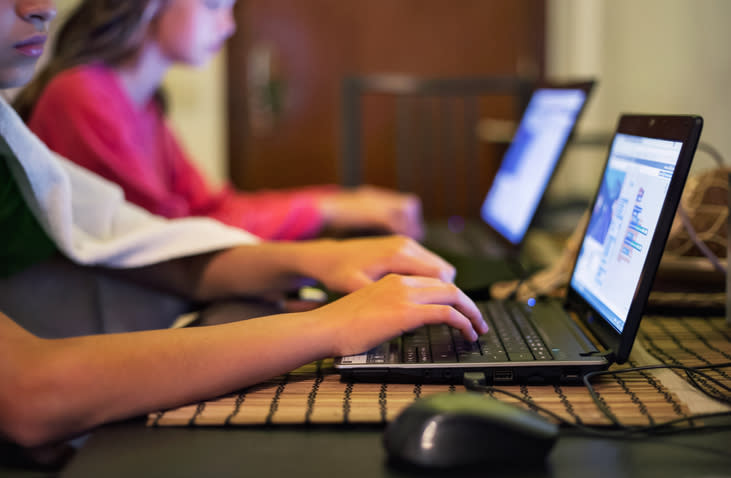
18."I'm not sure if this is a boomer/millennial thing or a first-generation immigrant thing, but my kid is not the embodiment of my American Dream. I'm grateful to my parents for their hard work to give me a nice childhood, but there was a lot of pressure and enmeshment. My kid is not an extension of my hopes and dreams — I am here to support his hopes and dreams, and to help him figure those out."
—38, New York
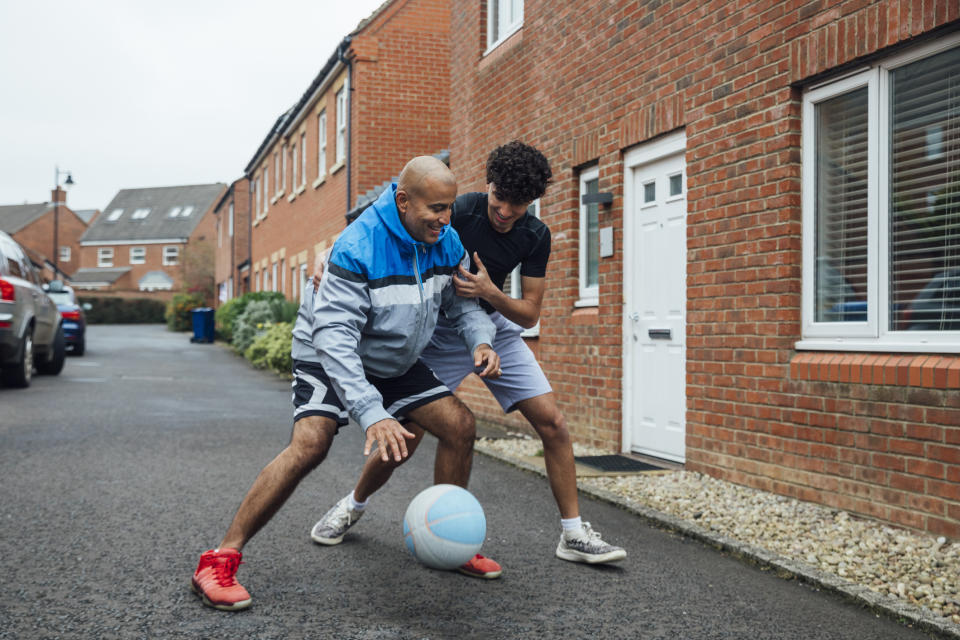
19."My parents were not the hugging type, never asked how my siblings and I felt, and never admitted that they were wrong when they were wrong. They were old school in a way that they were taught that because they are the parents they should be respected no matter what. Don’t get me wrong — they weren’t abusive or horrible; it’s just it was really hard to manage our feelings as kids and learn communication. Me and my siblings learned how to manage our emotions as adults. As a parent, I give my kids all the hugs and kisses they ask for, ask them how their day was, and do my best to acknowledge their feelings."
"Most importantly, if I’m wrong I try to explain to my kids that just because I’m an adult I make mistakes, too, and it’s OK to make mistakes as long as we try to talk it out and effectively fix our issues."
—37, California
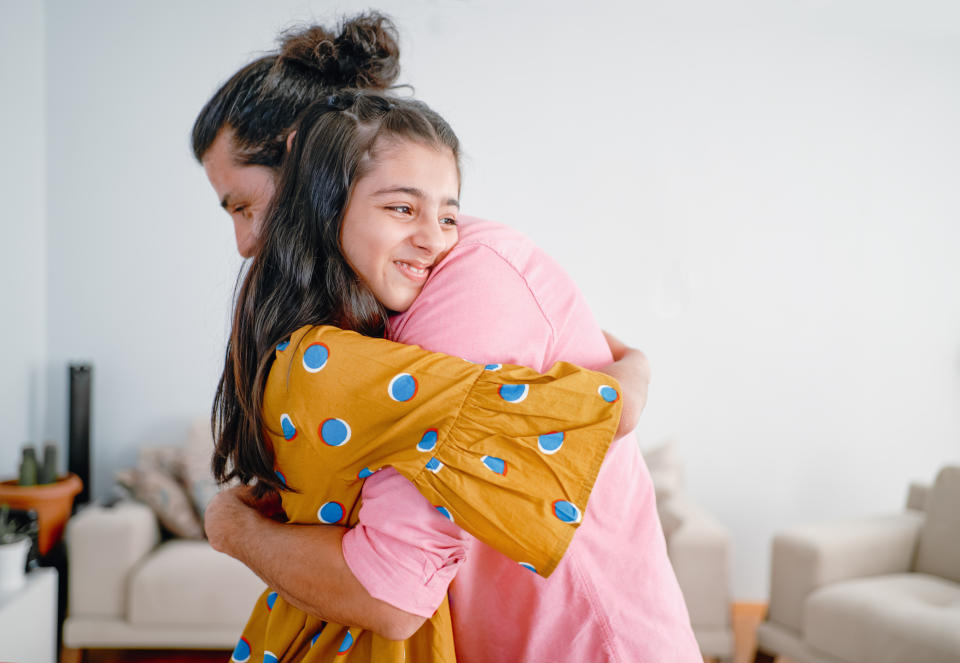
20."Mental health in schools. When I was a kid in elementary school, I had horrible anxiety and OCD. It was hard enough to leave my house, let alone go to school. I was labeled as a problem and treated terribly throughout my time. Many adults didn’t believe kids could have anxiety. Now, schools are all mental health-focused! They have calm-down corners and counselors with tools to help kids. I am very envious because I think I could have really had a different experience if I had the same privileges."
—29, Arizona
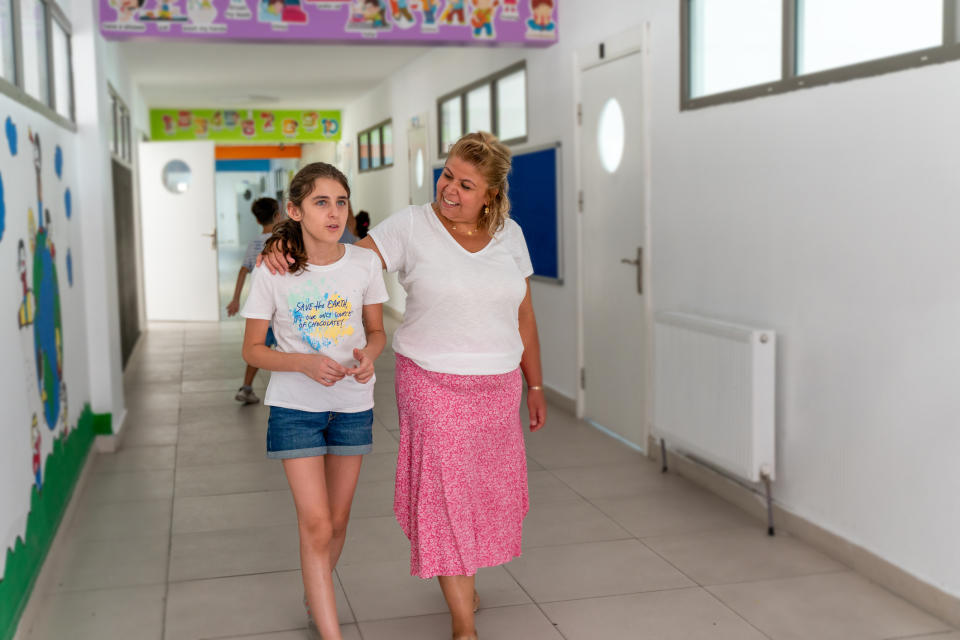
21."After both my husband and I were diagnosed with AuDHD (autism and Attention Deficit Hyperactivity Disorder) and ADHD after three of our kids were diagnosed with autism and ADHD, we decided to raise our kids in a way that allows them to flourish as themselves, and not be forced to mask and hide themselves. We homeschool, which allows our kids to focus on their current fixations: geography, coding, music, and biology. We don't stop our son with autism from doing his sensory seeking; we've encouraged it so he has the healthy outlet he needs."
"My husband and I know that we were forced to mask our true selves growing up, and we weren't encouraged to pursue our interests. Now that we're trying to unmask ourselves and explain things to our respective parents, it hasn't been positive, with lots of denial on both sides. We hope that by raising our kids to be themselves, they don't grow up with the same feelings that we've had to deal with."
—31, Missouri
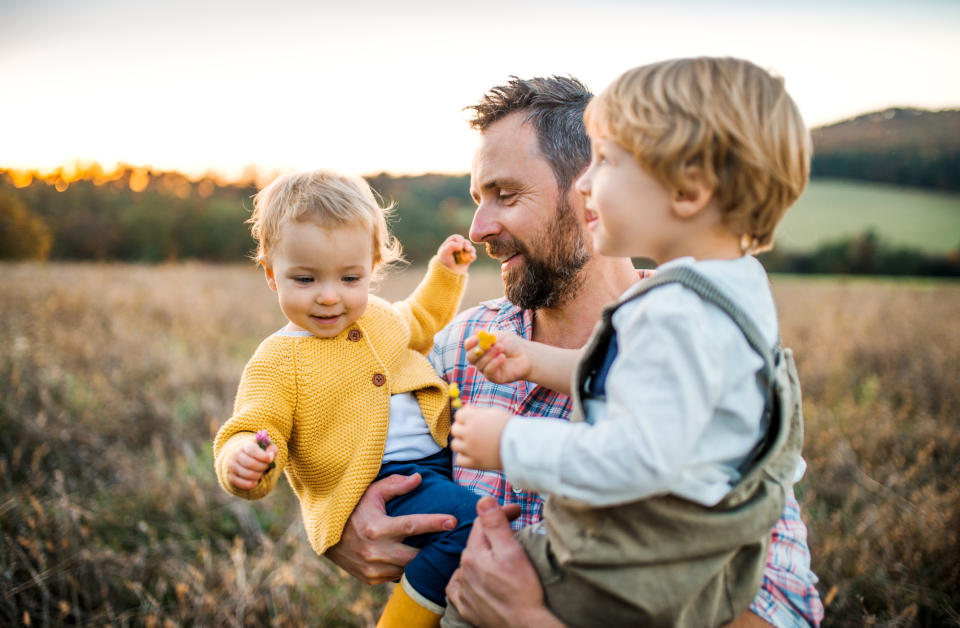
22."Touch screens. I remember telling all of my kids at least once that the TV is not a touchscreen. That thought NEVER occurred to me as a kid."
—37, Oregon
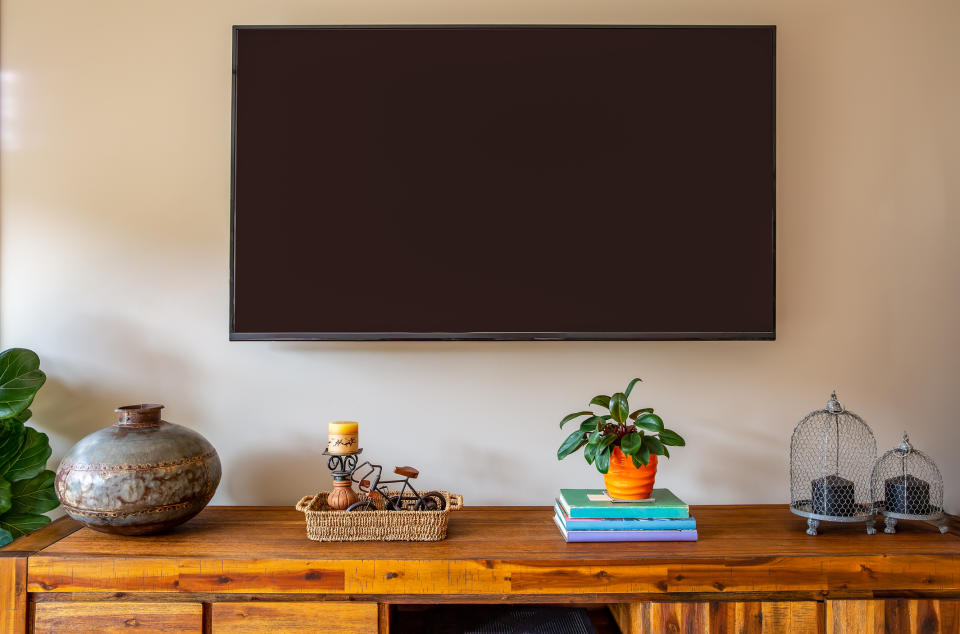
And finally...
23."I’d say communication is a big one for me. My parents did their best, but they weren’t good communicators. My mother is from South Korea and came over to the U.S. in the '80s, so I feel like that may be a factor, but I do wish they communicated more about finances, general safety awareness for children, and how important it is to know and understand how student loans and debt in general work. I took out credit cards and loans in college because I just didn’t understand and made mistakes."
"My parents also only have high school educations, so that may also be a factor. I make sure to teach my kids to save their money, only spend what they need, and understand there’s always a bigger picture to everything. I make sure they know their bodies are sacred and to always respect people regardless of their background or life. My parents did their best, but I want to do better for my children, and if learning starts at home, then it’s up to me to help to at least explain so hopefully they have a better understanding."
—37, New York
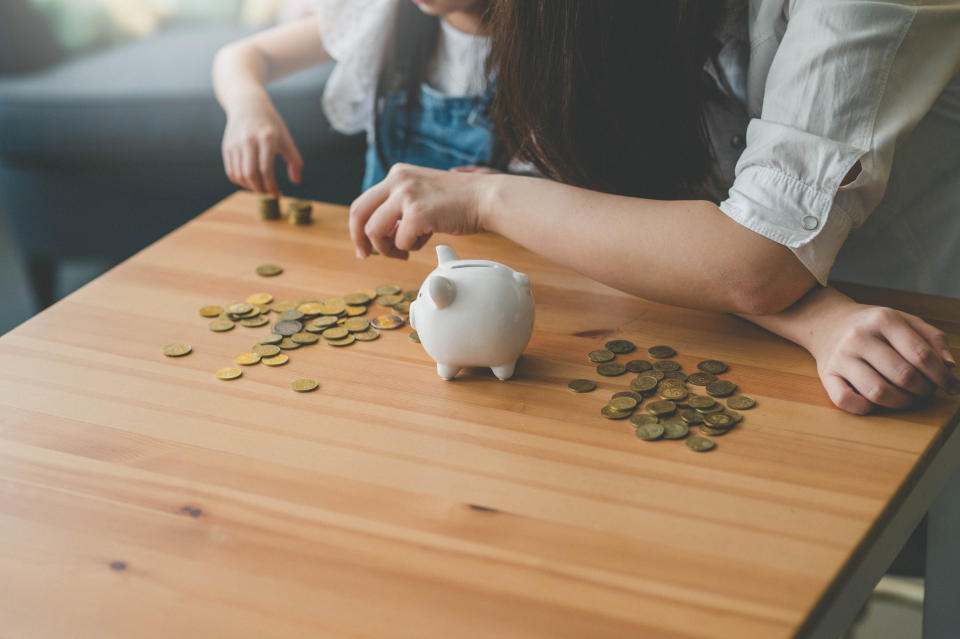
Millennial parents, how do your children's lives differ from how you grew up? Feel free to share your thoughts in the comments below.
Note: Some responses have been edited for length and/or clarity.

 Yahoo Lifestyle
Yahoo Lifestyle 
